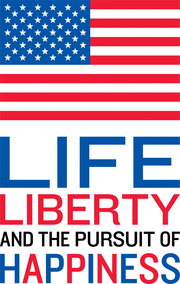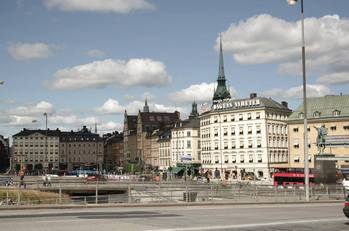| |  The United Nations came out with another of its happiness reports this week, which must be easier than, say, trying to stop Syria from attacking its own people with chemical weapons. Bashar Assad’s ruling tactics no doubt helped Syria to its 148th place showing |
| |  Stockholm, Sweden (Photo: J. Evensen) Stockholm, Sweden (Photo: J. Evensen) on this list. Deadly civil wars between brutal dictators and terrorist-riddled rebels don’t fit anyone’s definition of good times. But noticeably missing from the list entirely was Bhutan. Only a few years ago, this was described as the world’s last untouched Shangri-La — a place that regularly measured the happiness of its people rather than their gross national product, and that actually had a Secretary of Gross National Happiness. I always imagined his office as a place where workers had cake and ice cream every day and watched Disney movies on demand. Employee evaluations consisted of two questions: “Are you happy?” and “if not, how can we help?” Bhutan was supposed to be to happiness what Hershey, Pa., is to chocolate, or what Timbuktu is to clichés about distance. The prime minister of Bhutan, Jigme Thinley, even lectured the U.N. on the subject last year. But a happiness platform doesn’t necessarily play well at the ballot box. Thinley is now the former prime minister, beaten in the polls by Tshering Tobgay, who apparently won because people were miserable. The acronym for Gross National Happiness is GNH, which the BBC said had been equated with “government needs help.” And yes, it did. While Bhutan focused on happiness, its people suffered from unemployment, a burgeoning national debt and the perception that corruption was rampant. As I wrote once before, when governments get into the business of promoting happiness, you can bet misery is not far behind. If it’s up to bureaucrats to decide what will make everyone else happy, picnics will become about as fun as filling out a tax form. The U.N.’s World Happiness Report has a bit too much of a bureaucratic, scientific feel to it — sort of like a report that measures humor by the word patterns in jokes. The latest list has the United States ranked 17th, which is significantly worse than its 10th place showing last time. Mexico finished 16th. You may be wondering, as I am, why so many people from No. 16 are trying to get into No. 17. Drug lords, murder rates and the lack of functioning local governments must not be impediments to the warm fuzzies, even if they force you to leave it all behind. Venezuela finished 20th, which must mean happiness doesn’t equate with being able to find milk in the store after years under Hugo Chavez’ heavy thumb. But having said all this, the idea of studying happiness is not necessarily a fool’s errand. It can be instructive. The U.N. report was based largely on a Gallup poll. People in the Scandinavian countries dominated the top of the list, with Denmark, Norway and Sweden filling three of the first five slots. Having just returned from a family vacation there, I can attest to the profound feelings of calmness and well being I experienced. Even on the busy streets of Stockholm and Oslo, drivers did not compete with me to be first in some indefinable race. The pace was slower; the airwaves were not filled with political hate; and crime seemed like something people only read about in news reports from abroad. The greater question, of course, has to do with why this is so. Is there an indefinable cultural element at play? Can we really turn happiness into a public policy? Are we over-thinking this? The U.N. report contains good information relating mental health, personal values and character to happiness. But the information is probably best used in the hands of religious leaders, therapists and counselors. Governments certainly can create conditions that help people pursue happiness. But as Bhutan has learned, they can mess things up pretty bad, too. It’s probably best to focus on freedom, liberty, justice and opportunity and let regular folks figure out the rest themselves. |

 RSS Feed
RSS Feed

